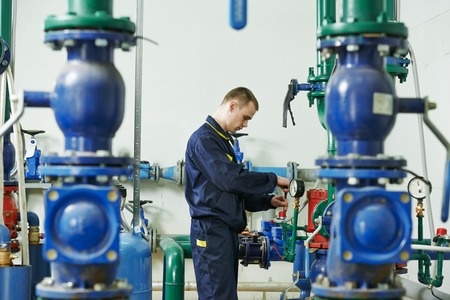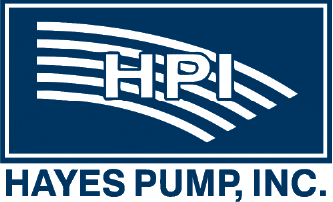Home » Blog » How to Protect Centrifugal Pumps From Deadheading
How to Protect Centrifugal Pumps From Deadheading
What is Deadheading?
A deadhead is when a centrifugal pump continues operating without any fluid flowing through the pump. Deadheading results primarily due to a closed discharge valve, line blockage, or if the check valve remains in a seated position.
 For example, if a discharge valve remains closed and there is no other path available for the water to flow, the pump will circulate the same fluid volume repeatedly. Due to consistent recirculation, the water temperature will also continue to rise because of the friction resulting from the rotating impellers. This increase in fluid temperature eventually reaches its flash point and begins turning to vapor.
For example, if a discharge valve remains closed and there is no other path available for the water to flow, the pump will circulate the same fluid volume repeatedly. Due to consistent recirculation, the water temperature will also continue to rise because of the friction resulting from the rotating impellers. This increase in fluid temperature eventually reaches its flash point and begins turning to vapor.
The vapor generated affects the cooling flow circulating through the pump’s packing and bearings and further leads to excessive wear and heat. Vapor also heats any bushings or mechanical seals in the pump to the point that they begin to shatter, crack, score or compromise the rubber-like polymer of the seal. This kind of damage can significantly reduce the pump life.
If a pump runs in a deadhead condition for a long duration, excessive heating will eventually kill the pump. A deadheaded pump can also lead to explosions due to the overpressure of hydraulic energy in the pump. Similar results can also be caused by running the pump dry for an extended period, leading to cavitation.
Why Deadheading is Difficult to Detect
If a pump is deadheading, the fluid levels inside the pump remain the same. As a result, the water level sensor cannot detect the deadhead condition. One of the effective ways to identify if your pump is deadheading is by monitoring the motor load.
The two available methods to determine motor load are:
- Motor current
- Input power
A deadheading pump will draw more current to convert it into a useful motor load. However, monitoring the motor current is not an effective method to detect deadheading because the current remains nearly constant until 50% of the motor load. Even at light loading, the current continues to flow without doing any useful work, making it difficult to detect any anomaly in the pump.
In contrast, monitoring the input power is a more accurate method. This is because the input power increases linearly, corresponding to the motor load range. Hence, even low power detection helps in identifying even the slightest change in motor load. At lighter loads, change in motor load detection by input power is up to 10 times more accurate than that based on motor current.
Therefore, using a protective device that detects a change in motor current may not accurately distinguish between the normal conditions from the deadhead conditions. Instead, a device providing low input power detection is more reliable to identify if your pump is deadheading.
How to Protect Your Pump from Deadheading
If a centrifugal pump is installed in a system where it may be subjected to periodic shut-off head conditions, it becomes imperative to provide some means of protection to the pump. One such way of protecting the pump from operating in the deadheaded state is by providing a recirculation line from the pump discharge line.
This line goes upstream of the discharge valve and back to the pump's supply source. The recirculation line should be adequately sized to allow for enough water to flow through the pump to prevent overheating and damage to the pump. By using an automatic flow control device, you can offer similar protection to the pump.
Along with deadhead protection, centrifugal pumps should also be protected from runout, leading to cavitation. Runout also causes excessive currents, which will overheat the pump's motor.
One way of ensuring adequate flow resistance at the pump discharge is by placing a throttle valve or an orifice immediately downstream of the pump discharge. Also, a properly designed piping system is critical to ensuring a pump’s safety from runout.
Need assistance in pump maintenance or repair? Let our expert engineers assist you. As the oldest and largest pump distributor in the Northeast, Hayes has the experience to assist in almost any industrial pump application.





